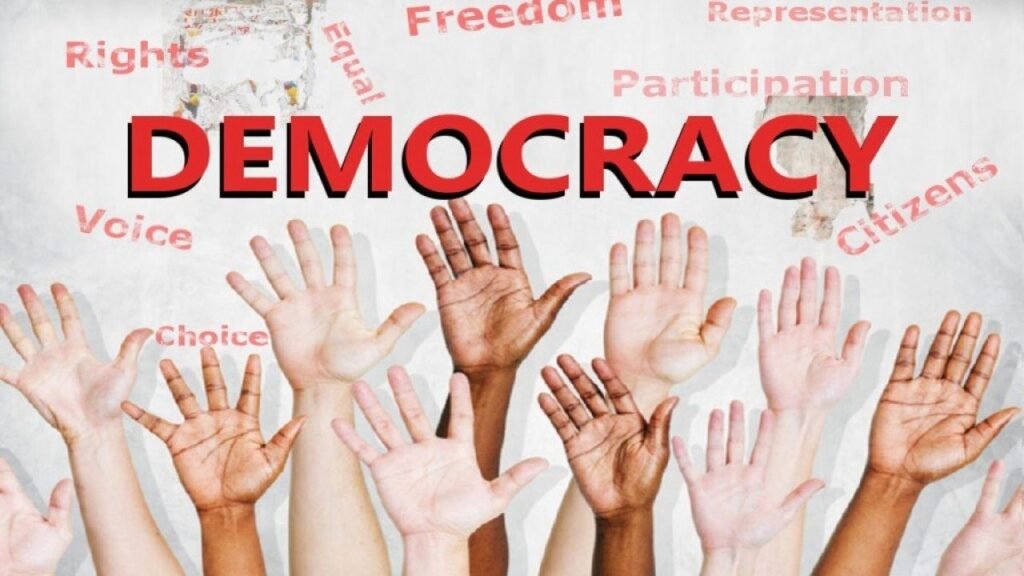Mutual tolerance among the political classes is fundamental to a democracy. Democracy thrives when political actors agree to disagree. It means that it is good to score on election night when the other side wins, but the losing side does not consider the development an apocalyptic one. Political parties being ‘gatekeepers’ of democracy disapprove of those elements who take the political discourse to the no-hold-barred point.
But to our chagrin, successive regime’s penchant for tilting field against political opponents has replaced mutual tolerance with a perception of a mutual threat, whereby every political party wants to secure electoral victory either by hook or crook, even at the cost of democracy. The prevalent toxicity in the political environment of the country is an outcome of it. Democratic norms have eroded and, as a result, opposition, be it current or previous one, pulled all the stops to send government packing. The non-cooperation between treasury and opposition benches on even some critical pieces of legislation is the manifestation of the very threat perception.
There is a need to look into factors as to why our political environment has ended up being so poisonous. The primary factor which has led us to this pass is the policy of political parties to give the driving seat to elements who pour more scorn on opponents. The more one berates political opponents, the more he gets closer to party leadership. Such people do not even desist from hitting below the belt by dragging families of political opponents into dirty politics. What is more, instead of giving slaps on the wrist, party leadership gives a pat to such elements on their back.
Such a poisonous political environment has served as an incubator to politics of extreme partisanship. The notion of extreme partisanship so spawned has not remained confined to the political elite; in fact, it has crept into society as well. People have sorted themselves into different political camps and, sadly, they hold views that are not only different but mutually exclusive. How our youth nowadays trade barbs while expressing their opinion on social media platforms on a certain political issue is a testimonial to this fact. A wide majority of Pakistanis who use social media enthusiastically partake in tailoring some disgusting and farcical trends, aimed at belittling any specific religious, political, or social group. There are also frequent instances where journalists are dogged about holding different arguments on a certain issue. Social media brigades make things warm for those who dare not toe the line.
Things being what they are, it is no surprise then that the most cherished democratic norms have been dumped. The unwritten democratic and political norms not only serve as guardrails to democracy by keeping anti-system elements at bay but also reinforce the constitution. However, these norms are rapidly vanishing under the current political culture. Today, political discourse has sunk so low as politicians always seem to be in search of an opportunity to demonize their opponents. The political landscape so shaped has accentuated an immature political lot that views political opponents as a nemesis to be eliminated rather than competed with.
Here lies the rub. This intractable discord among the political class allows anti-system quarters to poke their nose in civil matters. Follies of the political elite give space to the establishment in the political landscape. No wonder then establishment emerges as a strong power broker, and a same political lot is found queuing up at the majestic gate of GHQ to beg for military crutches.
The future of democracy seems doomed in such a scenario. If we want to preserve democracy, there is a dire need to do away with the perception of mutual threat and restore political tolerance. For this to happen, extremists in political parties should be sidelined and saner voices should be encouraged. The respective party leadership should shake those elements off who vitiate the atmosphere by spewing venom against rivals even if such a move comes at a steep political cost because political parties are gatekeepers of democracy and, as such, they should not sacrifice democratic norms at the altar of momentary political gains. Political leadership should take a leaf out of the example set by Swedish Conservative Party (AFV) back in the 1930s. The party expelled its youth organization which started supporting Hitler vociferously and criticizing parliamentary democracy. Though the party had to face backlash in 1934 municipal elections, the strategy scaled down the role of anti-democratic forces. The ball is in the court of the political class. This is the only way ahead if we want to be a truly democratic country.
The views expressed in this article are the authors’ own and do not necessarily reflect The Asian Mirror’s editorial stance.
